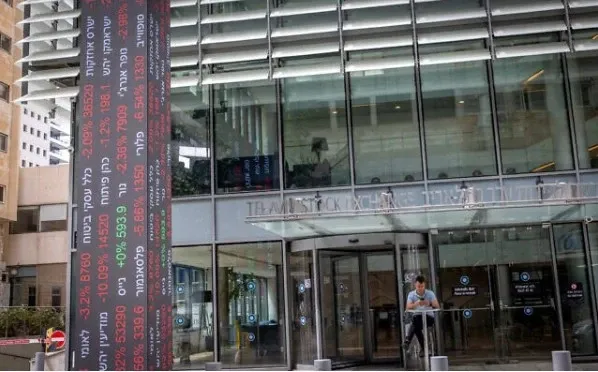Is the Tel Aviv Stock Market Breaking Records Amidst Rising Tensions?

Synopsis
Key Takeaways
- Tel Aviv Stock Exchange reached an all-time high of 6,490.
- US airstrikes on Iran significantly heightened geopolitical tensions.
- TA-125 and TA-35 indices showed impressive gains.
- Investor confidence remains strong despite regional instability.
- The market has been in a positive trajectory, gaining nearly six percent last week.
New Delhi, June 22 (NationPress) The Tel Aviv Stock Exchange (TASE) experienced a remarkable surge of over five percent on Sunday, achieving a record high amidst escalating geopolitical tensions, particularly with the US's involvement in the ongoing dispute between Israel and Iran.
TASE reached an impressive peak of 6,490 before stabilizing around 6,450, representing a notable five percent increase from its previous closing figure of 6,137.
The broader indices of the Israeli stock market also showcased robust performance during the trading session.
As reported by Israeli media, the TA-125 benchmark index rose by 1.6 percent, while the TA-35 index, which monitors Israel's leading blue-chip companies, saw an increase of more than 1.5 percent.
Notably, the TA-Insurance and Financial Services Index recorded a significant 3.2 percent jump, indicating strong investor interest across various sectors.
In contrast to many global markets, Israel's stock exchanges remain operational on Sundays due to the Friday weekend observed in the nation.
This rally occurred just hours after the US executed airstrikes on three critical nuclear facilities in Iran—Fordow, Natanz, and Isfahan—early Sunday morning (India time 4:30 a.m.).
The US airstrikes have dramatically heightened tensions in the region, prompting immediate retaliatory actions from Iran.
In retaliation, Iran reportedly launched more than 30 ballistic missiles aimed at Israel, according to the Israel Defense Forces.
The missile strikes resulted in injuries to at least 16 individuals and caused damage to multiple buildings throughout the country.
Major Israeli cities, including Tel Aviv, Haifa, and Jerusalem, were targeted during Iran's counterattacks.
Significantly, the Tel Aviv Stock Exchange building itself sustained damage during a missile strike from Iran on Thursday, when 25 missiles were fired at Israel.
The markets had already been on a strong upward trajectory, with stocks gaining ground in all five trading sessions of the previous week.
This overall rally amounted to nearly six percent, driven by Israel's strikes on Iranian nuclear and military facilities.









